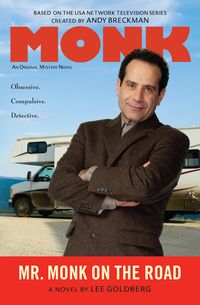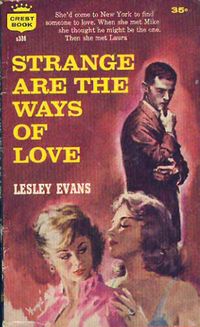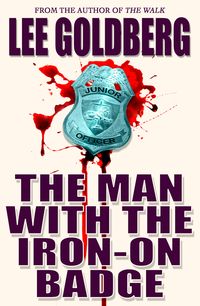MR. MONK ON THE ROAD has been out for a couple of days and the reviews are starting to come in. The Gumshoe Review liked it a lot and said, among other things:
With each new Monk novel that author Lee Goldberg gives us, plot becomes less and less important, and the characters and their interactions with one another become more important. Mr. Monk on the Road cannot boast of having an actual plot. The book is comprised of a series of vignettes that are loosely tied together through the device of the motor home and the improbable road trip. But this fact will not greatly trouble readers of the previous Monk books. The joy of this narrative is derived from observing Mr. Monk as he effortlessly spots the subtle clues and unravels the baffling complexities of each crime scene. And further pleasure is derived from the continuing evolution of the relationships between Monk, Natalie Teeger, brother Ambrose, and SFPD Captain Stottlemeyer.
Readers of Monk will enjoy Mr. Monk on the Road as much as or more than any of the Monk books that have preceded it. Heartily recommended.
And my friend Bill Crider also found a lot to like in this one. He said, in part:
The jokes are funny. The human relationships are serious and treated with dignity and respect, and the mystery aspect is . . . solidly there. I can say no more. Okay, that's a lie. I can say that this is another fine entry in a spin-off series that's taken on a life of its own. In fact, this book is the first one that picks up after the end of the TV series. I'm looking forward to keeping up with the adventures of Monk and Natalie for a long time to come. While the TV show is in endless reruns, those two characters will be living out their lives in ways that are bound to be well worth reading about
Thank you both for the great reviews!
UPDATE: I don't know how I missed it before, but Gumshoe Review also gave a rave to MR. MONK IS CLEANED OUT. They said, in part:
Mr. Monk is Cleaned Out may well be the finest entry to date in the Mr. Monk series, although it took me awhile to put my finger on the precise reasons that I liked this book so much. One major reason, I finally realized, is that this story resonated on some very sympathetic levels. The descriptions of small businesses gone bankrupt, police officers and others who have lost their jobs due to budget cuts, and people fearful of losing their homes to foreclosure struck a definite chord. So many of us these days find ourselves walking an economic tightrope, and this book's frank portrayal of that condition seemed to create a sort of brotherhood–a brotherhood comprised of both the readers and the characters. A kind of, "We're all in this together" spirit of dismal camaraderie.
Speaking of characters, throughout the Mr. Monk series author Lee Goldberg has always kept a firm grasp on exactly who his characters are, and he is able to expertly play them against one another to the best dramatic and comic advantage. If anything, Goldberg's use of his characters, dialogue and dramatic pacing has with time gotten better yet. From Natalie Teeger's inner dialogues that reflect the uncertainties of a single mother (and single woman) in today's uncertain world, to the lovable, but usually clueless and banal ideas that fall from the lips of police detective Randy Disher, to the extreme obsessive-compulsive manias that beset Mr. Monk on a daily basis, the idiosyncrasies and resulting interplay of these characters is a delight to the reader.
Mr. Monk is Cleaned Out is a first rate comic crime novel, but more so it is a celebration of all things Monk. A celebration that any fan of Mr. Monk will revel in. I heartily recommend this book.







